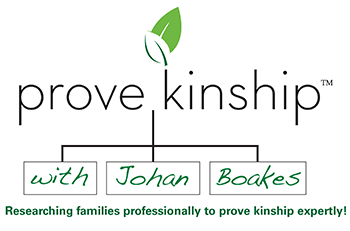Kinship
 When a person (“the decedent”) dies without leaving a valid Last Will and testament (“Will”), the estate is determined to be intestate (i.e. without a Will). Consequently, any and all assets owned by the decedent at death (which are held individually and not jointly in a trust for another person) must be distributed according to relevant laws. For any family member claiming an interest in the estate, it is important for the family to understand they bear the burden to prove kinship. It is this kinship process that establishes who has the legal right to inherit as distributees (also called “heirs” or “claimants”).
When a person (“the decedent”) dies without leaving a valid Last Will and testament (“Will”), the estate is determined to be intestate (i.e. without a Will). Consequently, any and all assets owned by the decedent at death (which are held individually and not jointly in a trust for another person) must be distributed according to relevant laws. For any family member claiming an interest in the estate, it is important for the family to understand they bear the burden to prove kinship. It is this kinship process that establishes who has the legal right to inherit as distributees (also called “heirs” or “claimants”).
Decedents especially, those who die elderly without known close family members may be survived by more distant relatives. Some of those relatives may have had little or no contact with the decedent and/or other relatives for many years, so their whereabouts are unknown. Similarly, if the decedent is survived by one or more close family members, they must still satisfy the Court that they are the only distributee(s), as understandably no distribution can be made until the complete family tree has been established to prove full kinship.
Proving kinship can therefore be an involved and complicated process, as it requires the presentation of complete and accurate testimonies and certified legal documentary evidence to prove the decedents’ family tree, to the Courts satisfaction. Put another way, any person who claims to be a distributee and entitled to all or part of the decedent’s estate, is required to prove their individual consanguinity (lineage, blood relationship) to the decedent, which is one small part of proving the decedent’s entire family tree. Therefore, a thorough presentation of both the entire maternal and paternal family trees (to include both living and already deceased family members) is required.
 Typically the genealogical research in such cases spans 150+ years of ancestry on each side of the decedent’s family. This genealogical research by virtue of our global society and foreign migrations since the 1800’s often includes research, ancestors and/or heirs in multiple countries. Adding, to the complexity of this work, are the changes in countries, borders cities and towns, which have taken place during this time.
Typically the genealogical research in such cases spans 150+ years of ancestry on each side of the decedent’s family. This genealogical research by virtue of our global society and foreign migrations since the 1800’s often includes research, ancestors and/or heirs in multiple countries. Adding, to the complexity of this work, are the changes in countries, borders cities and towns, which have taken place during this time.
Consequently, claimants having an incomplete knowledge of the decedent’s family (and even those with a good knowledge of the family tree) often benefit from hiring a professional genealogist with extensive experience in genealogical forensic research and a successful track record. Because proving kinship is so highly specialized it is equally important to retain an estate attorney with specific experience in this specialized field.
Choosing skillful and experienced professionals to represent you in your case is crucial in not only successfully proving your right to inherit from the decedents’ estate, but, doing so as cost effectively and efficiently as possible, where you have the option to proceed with no risk or out of pocket expenses.
